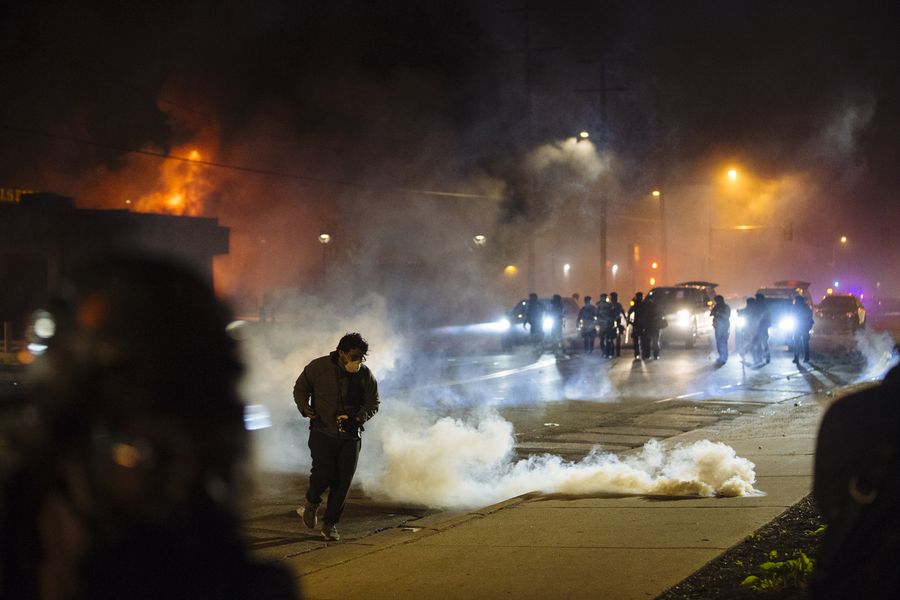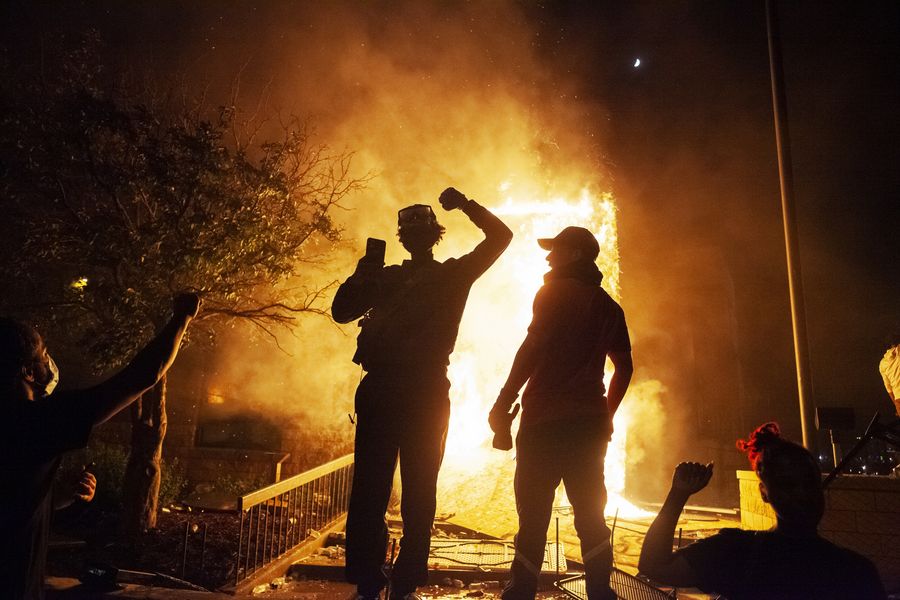
A protester runs from tear gas fired by the riot police in Minneapolis, the United States, May 29, 2020. (Photo by Angus Alexander/Xinhua)
"The situation in Minneapolis is no longer, in any way, about the murder of George Floyd," Minnesota Governor Tim Walz said Saturday. "It is about attacking civil society, instilling fear and disrupting our great cities."
WASHINGTON, May 30 (Xinhua) -- Minnesota Governor Tim Walz on Saturday activated "full mobilization" of the Minnesota National Guard after four straight nights of violent protests in the midwest state's biggest city Minneapolis over the death of George Floyd, an unarmed black man, in police custody.
The move represents the largest domestic deployment in the Minnesota National Guard's 164-year history, local media reported.
More than 1,000 additional Citizen-Soldiers and Airmen will be activated on Saturday, according to a tweet from the state's National Guard.
This is in addition to the 700 that were on duty as of late last night, the tweet said.
Thousands of protesters took to the streets of Minneapolis Friday night, defying a citywide 8 p.m. curfew that had been announced earlier that day. Businesses were burned and vandalized, as the rioting continued, said local media reports.

Protesters stand in front of the burning Minneapolis 3rd Police Precinct building in Minneapolis, Minnesota, the United States, on May 28, 2020. (Photo by Ben Hovland/Xinhua)
"So, let's be very clear. The situation in Minneapolis is no longer, in any way, about the murder of George Floyd," the governor said at a press conference on Saturday morning. "It is about attacking civil society, instilling fear and disrupting our great cities."
Floyd, aged 46, died on Monday after Derek Chauvin, a white police officer, held him down with a knee on his neck though he repeatedly pleaded, "I can't breathe," and "please, I can't breathe." Chauvin was arrested and charged with three-degree murder and manslaughter on Friday.
Floyd's plea before his death evoked African Americans' painful memories and sparked a nationwide cry for justice. In 2014, a cellphone recorded an unarmed black man, Eric Garner, repeatedly saying "I can't breathe" when a New York officer held him in a chokehold before his death in police custody. Since then, the plea has become a rallying cry at demonstrations against police misconduct across the country. ■



